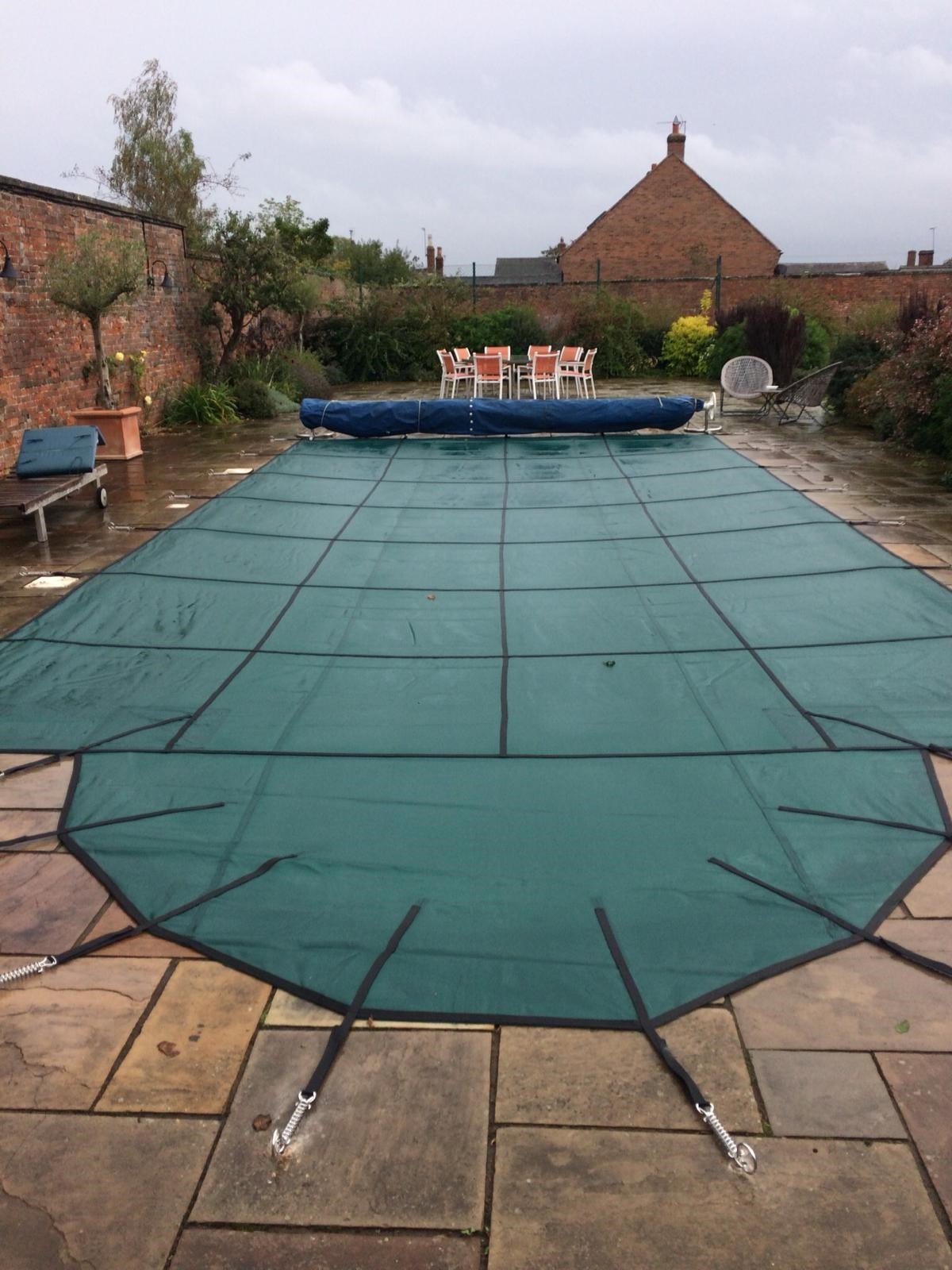Whether you are jetting off for the ski season, or simply closing the pool for the winter months, a good winter pool cover is essential for protecting your home swimming pool. The choice of cover, however, depends on your personal requirements and the type of pool you own.

I’m Not Using My Pool Over The Winter
If you are not intending on running your pool at all during the colder months, it is important to lower the water level to just below the skimmer. For maximum protection, your pool will require a flexible cover similar to a specialised tarpaulin. This strategy allows rain to be allowed through and other debris to be collected, keeping the pool clean from debris. A flexible cover will also expand and contract in response to ice, preventing damage to the pool lining. This inexpensive solution ensures that your pool is ready for re-use as soon as the warmer weather arrives.
I Might Use My Pool Over The Winter
With Christmas coming and families finally able to socialise again, many people are choosing to keep their pools ready for staycation parties – betting on mildish weather until the New Year. In this case there are two main challenges that the pool cover needs to address. The first is the loss of heat, which can cause a sharp rise in energy bills, even during ‘mild’ winter weather. The second is the condition of the water, which is vulnerable to increases in debris, bacterial contamination from rainwater, and ice. Therefore, a solid cover is the most practical and effective solution. Solid pool covers are recommended for year-round use because they improve energy efficiency, water quality, and pool safety. However, during the winter in particular, the use of a solid cover also offers a myriad of cost-saving and time-saving benefits, making a wise investment for winter swimmers.
I Don’t Want To Drain My Pool or Fit a Solid Cover
If neither of the two most popular options are right for your pool, you can consider a flexible, retractable cover. These operate on the same principle as bubble wrap and use air pockets to retain heat. The cover floats on the water, enabling the pool to be kept full over the winter, whilst keeping out most of the leaves. When using this type of cover, water quality will still need to be regularly checked and your pool could still freeze, but the risk of damage from ice is greatly reduced when compared to using no cover at all. The strategy is ideal for busy pools that require regular access over the colder months.
Which Is The Best Solution For My Pool?
Every home has unique requirements, and thankfully there will always be a pool cover to fit your budget. If you have any questions about the best way to protect your outdoor home swimming pool over the winter months, it helps to ask an expert. Get in touch with our swimming pool maintenance team to find out more.

